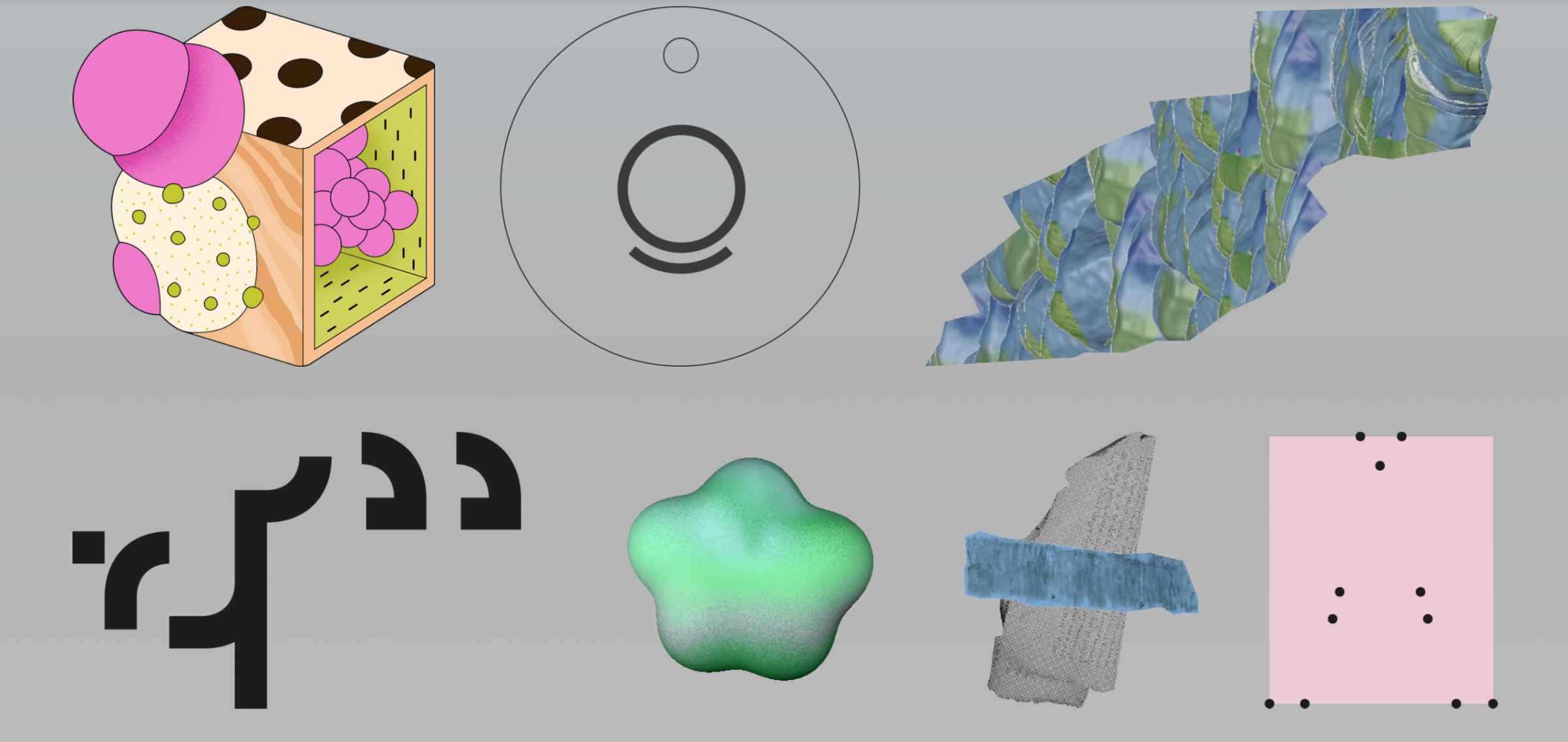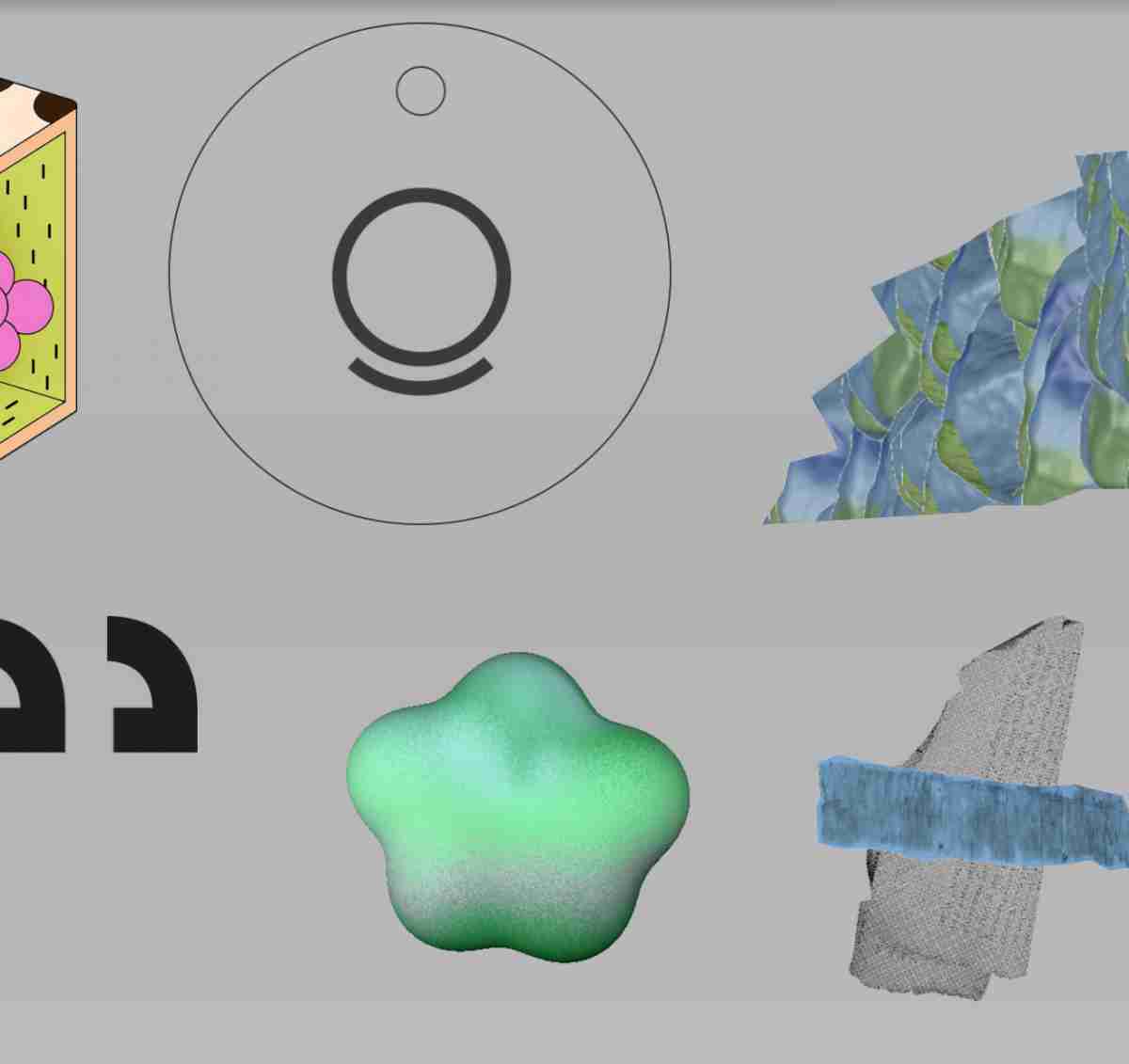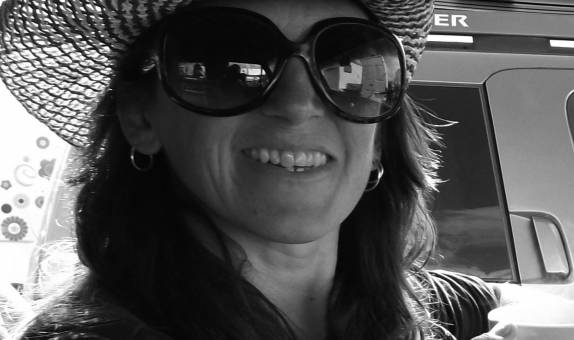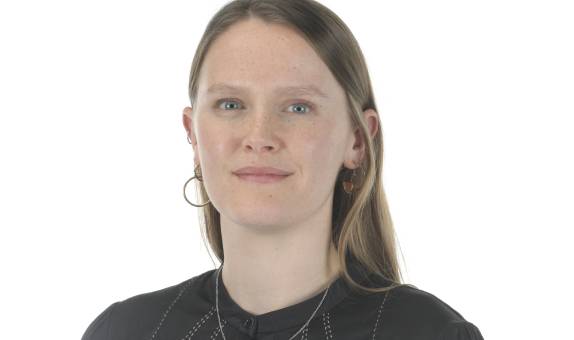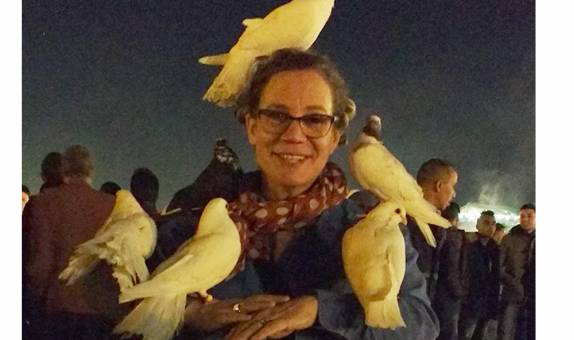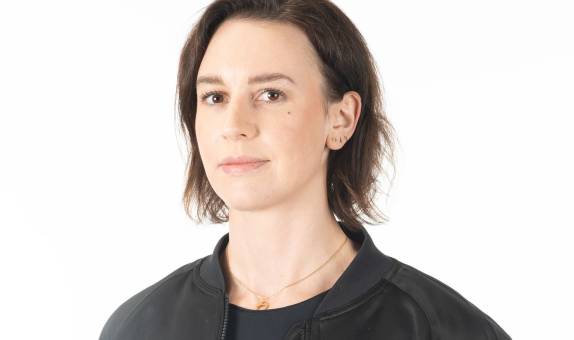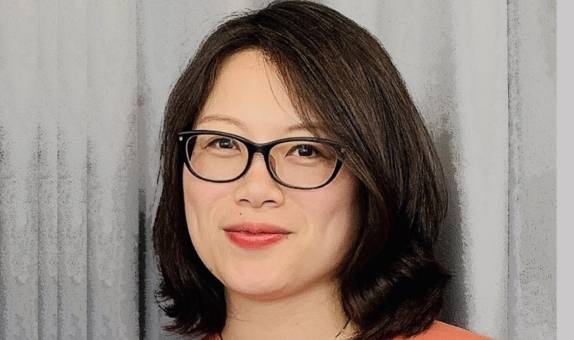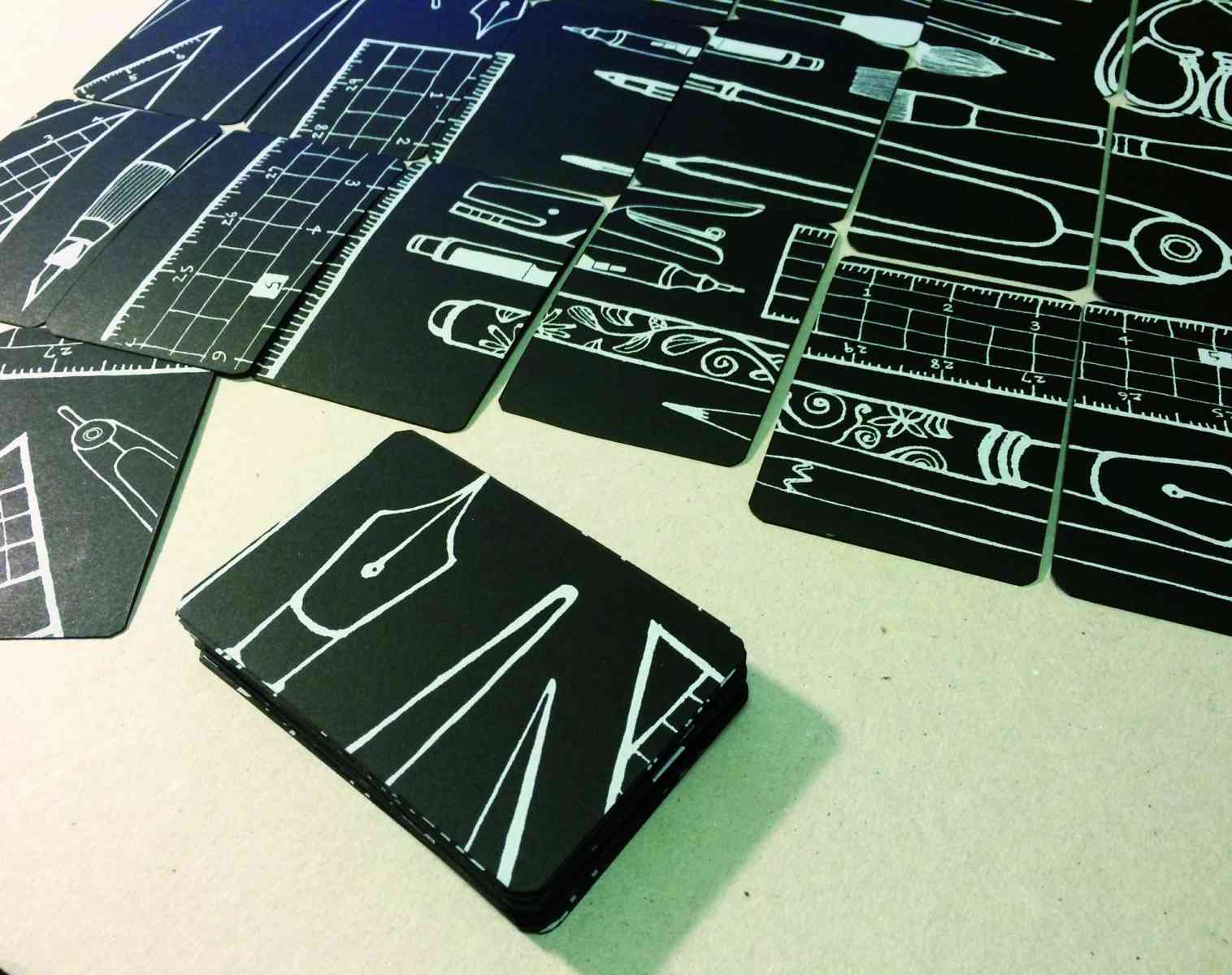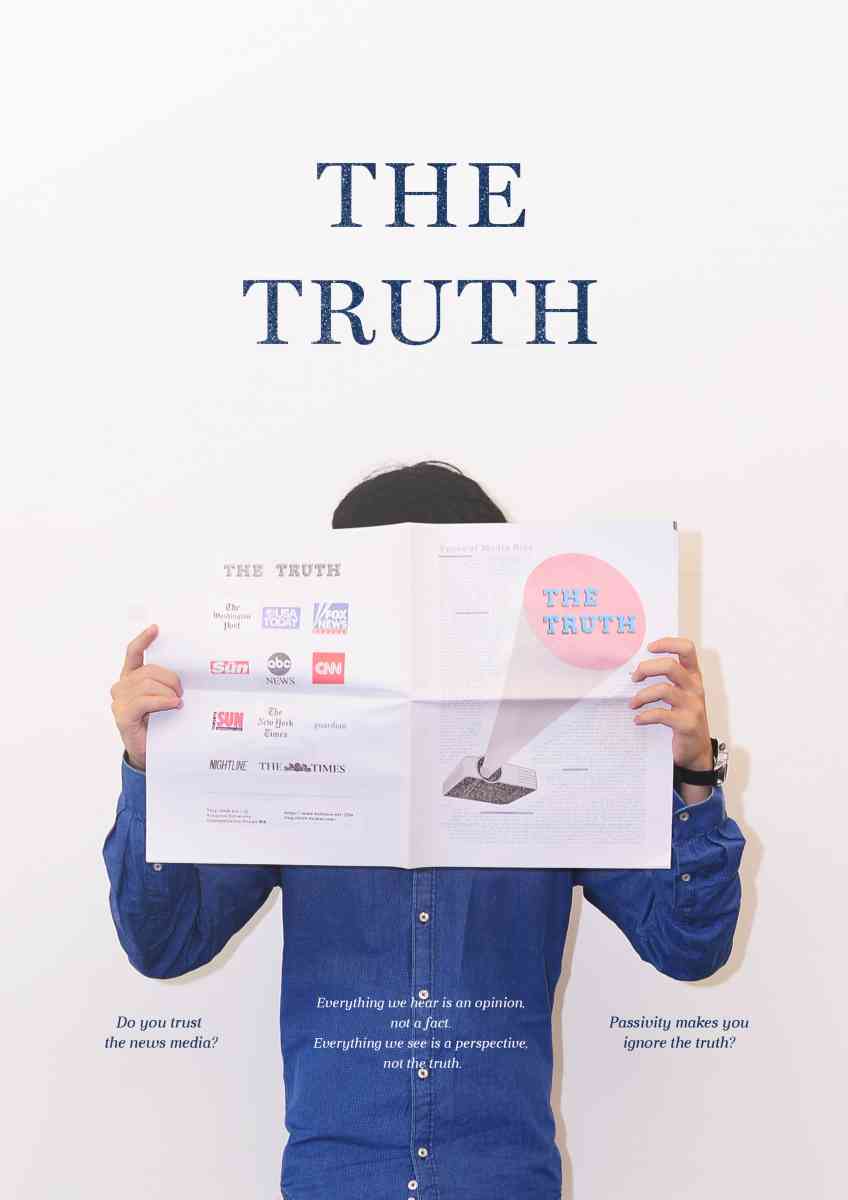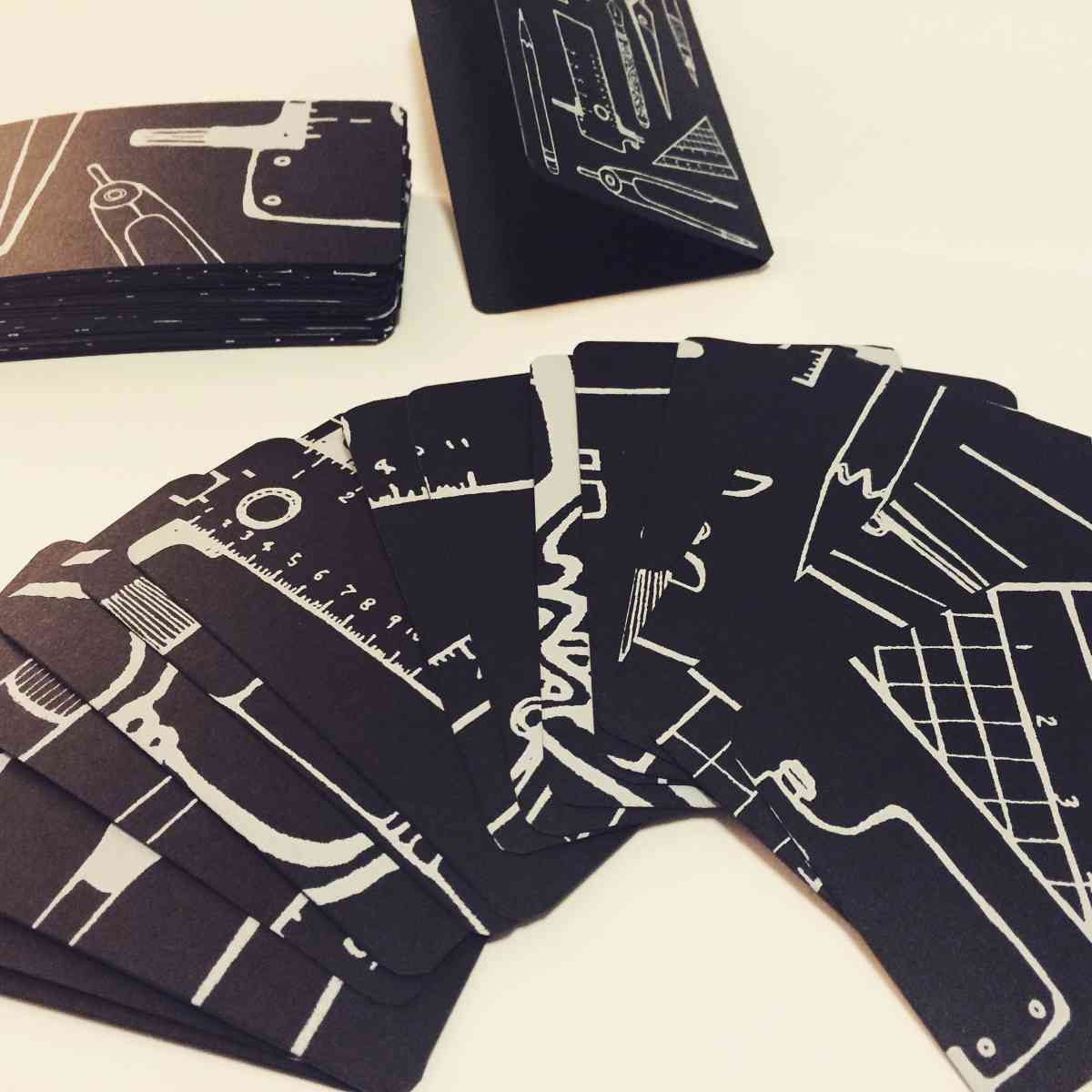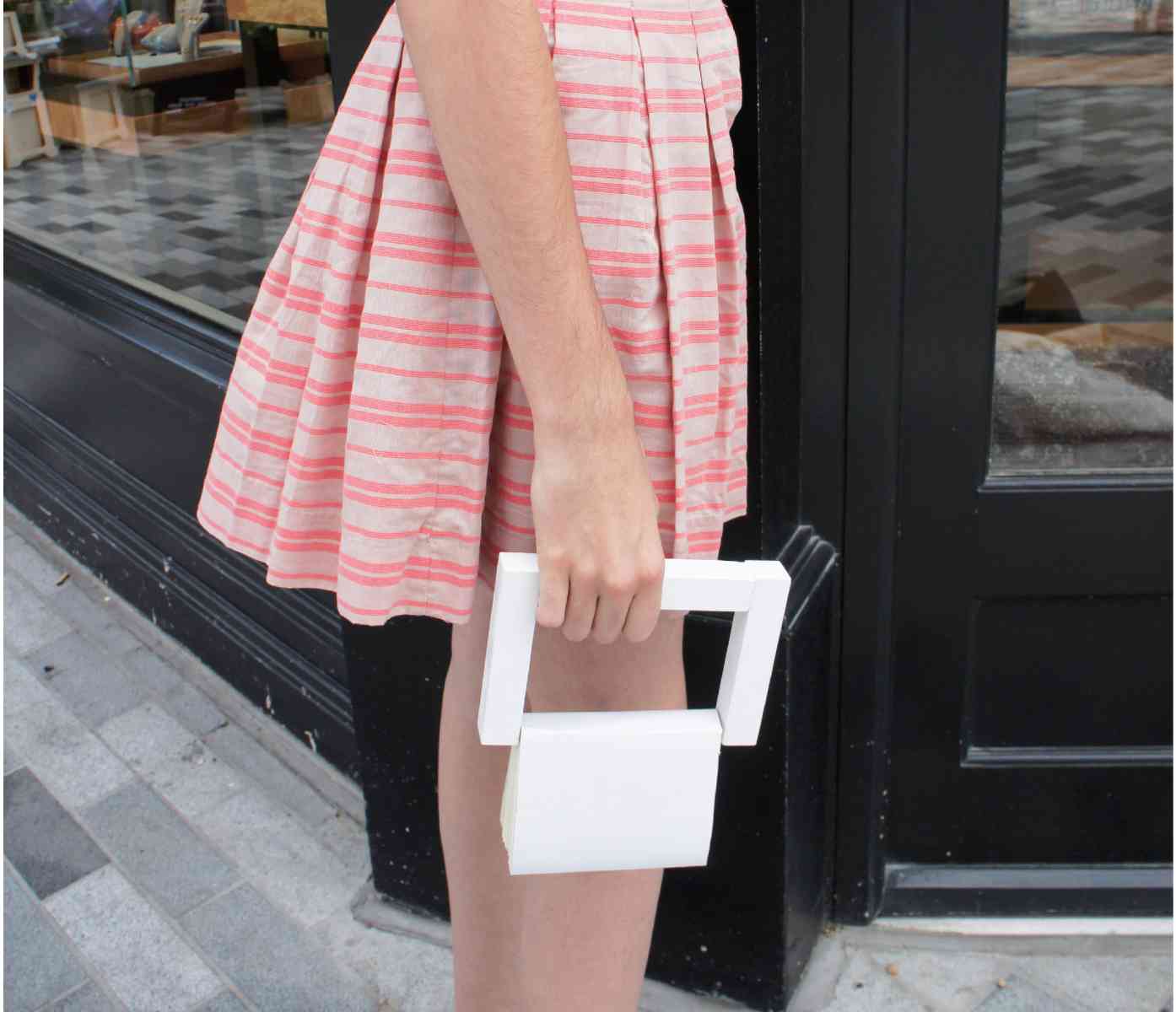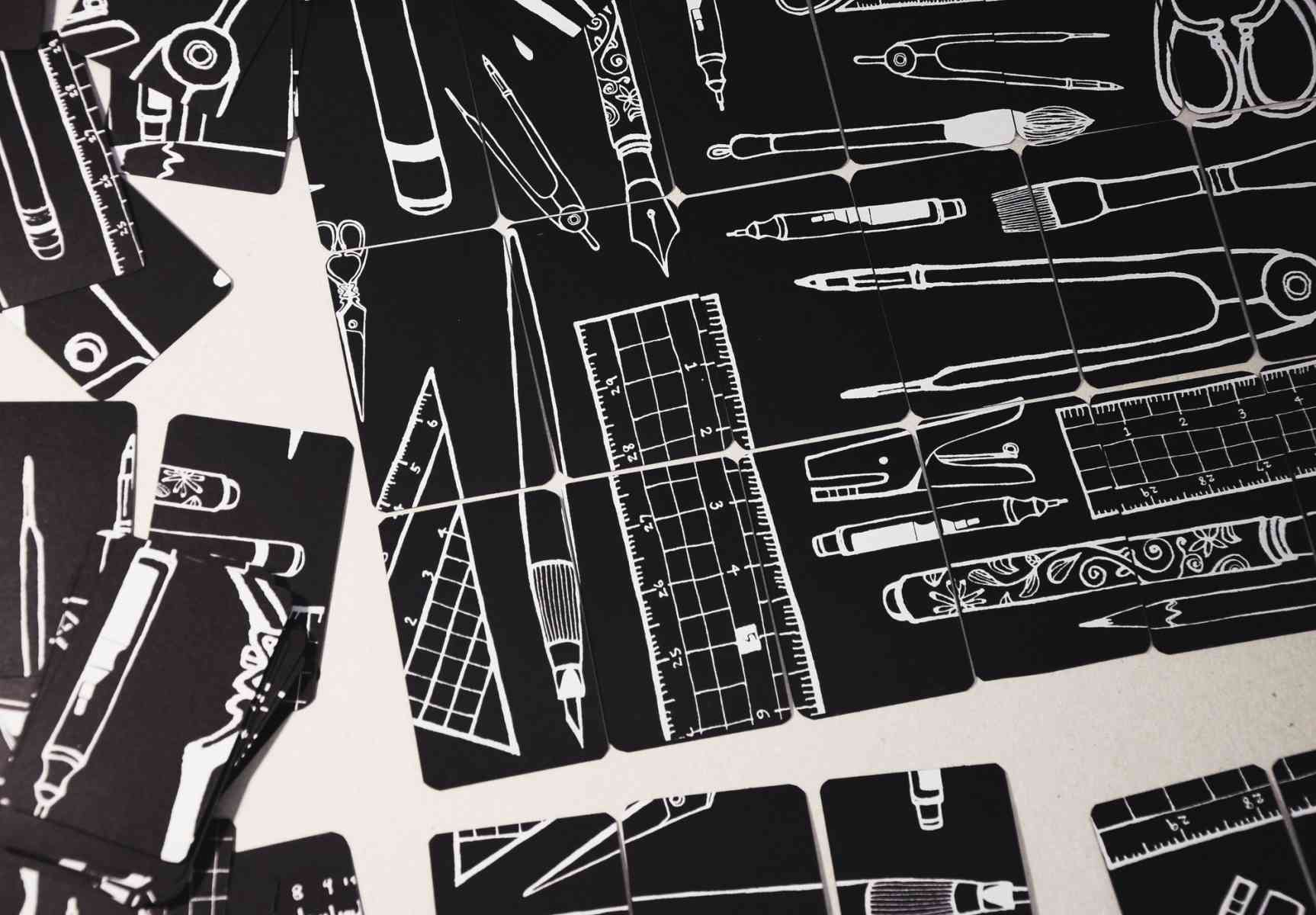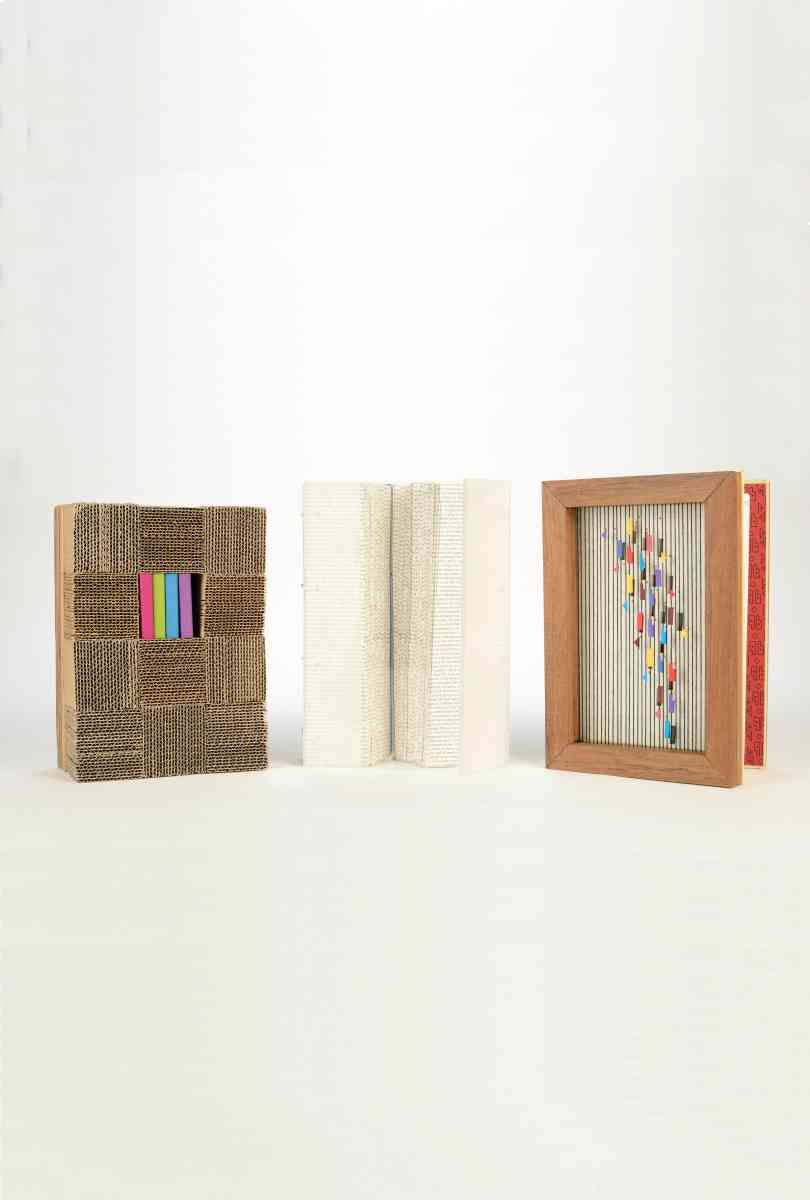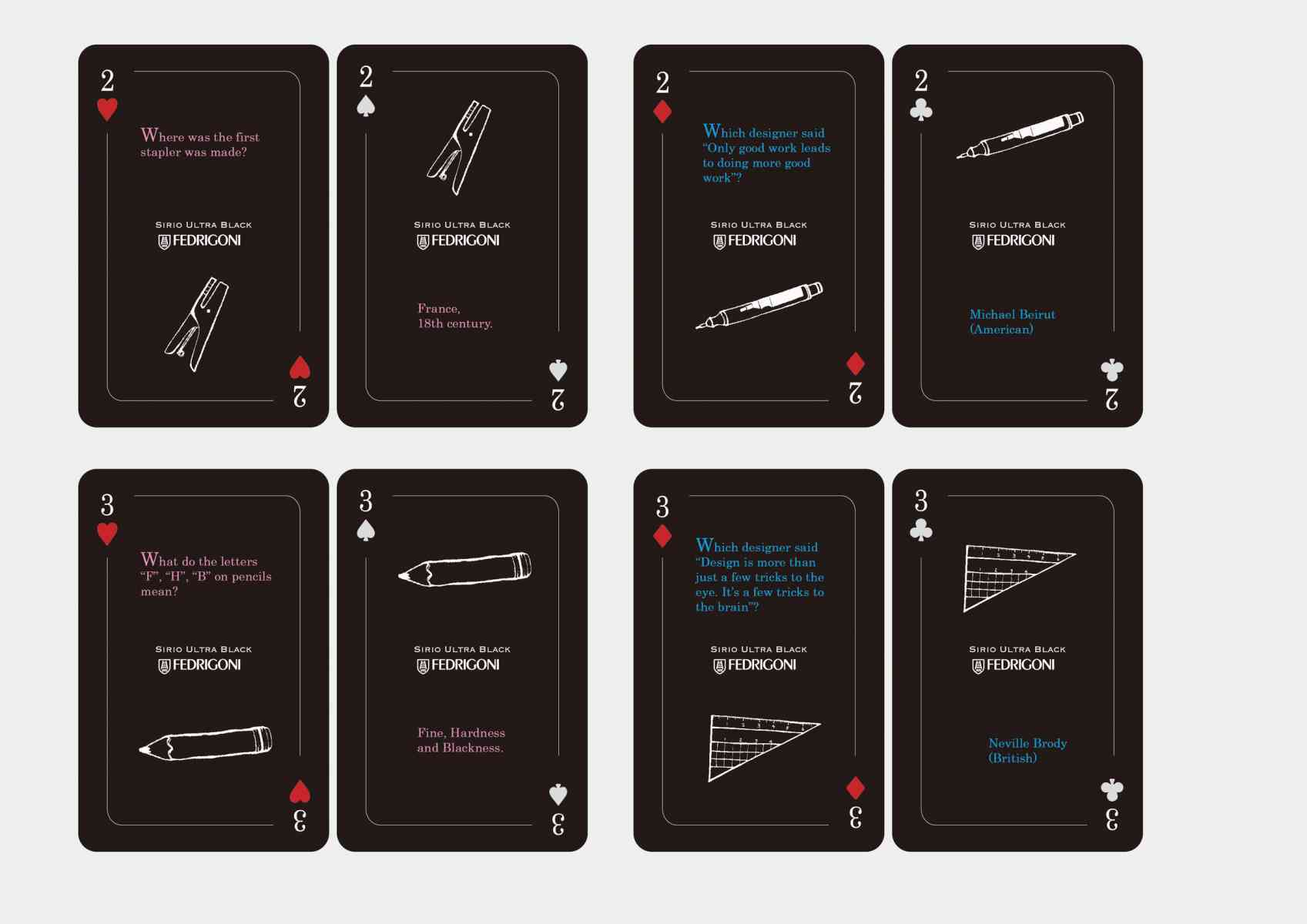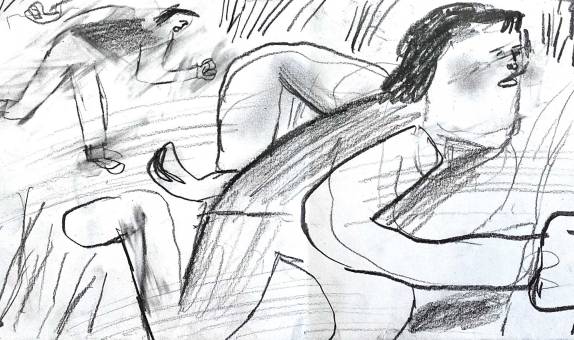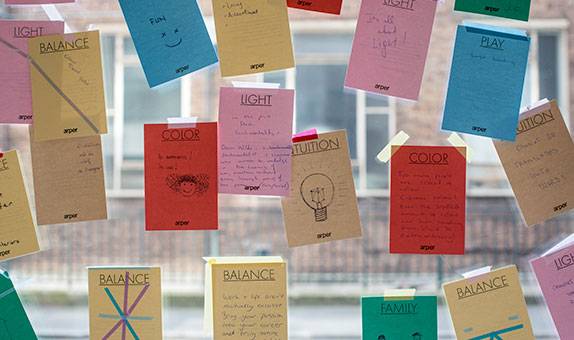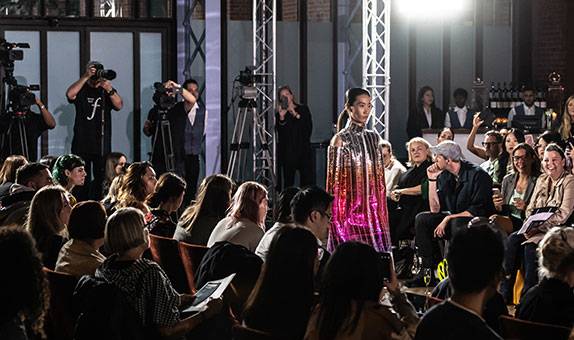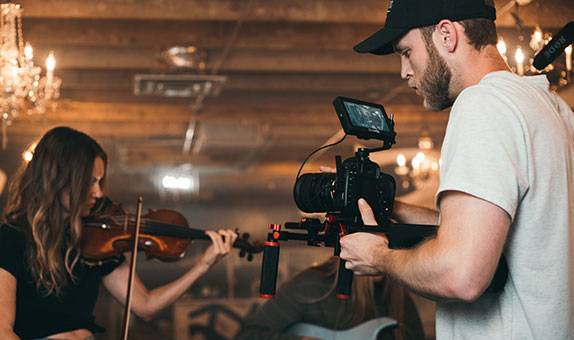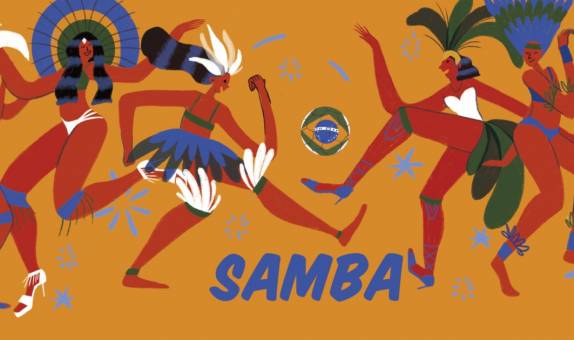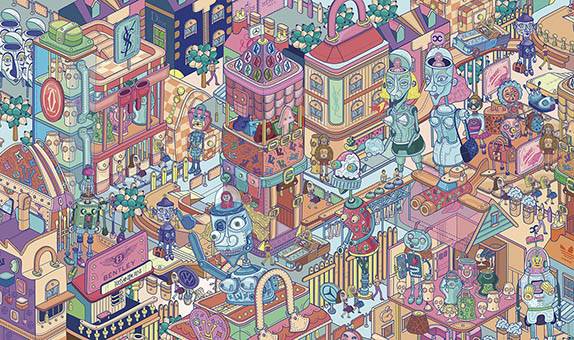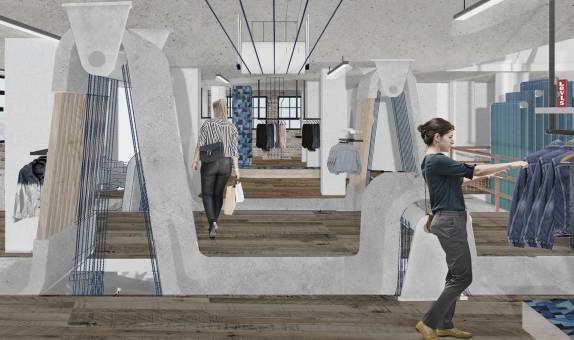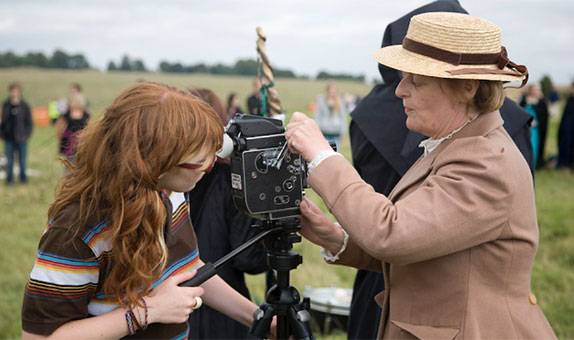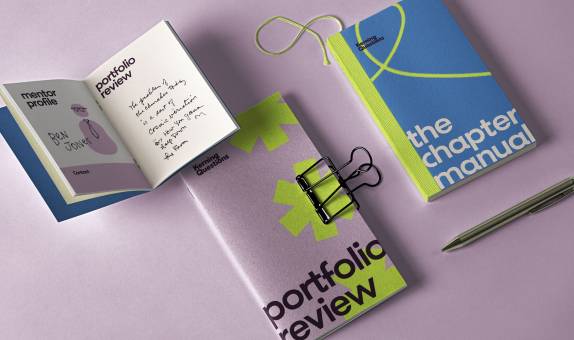Graphic Design MA
Why choose this course?
The MA Graphic Design programme at Kingston School of Art takes a practice-based, research-orientated approach to anticipating the future potential and practice of graphic design. The course will explore and challenge assumptions about the designer, as a researcher, facilitator, producer, artist, storyteller, teacher, author, entrepreneur, provocateur, leader, and agent of change.
We are ambitious for our students and invested in pushing the boundaries of the discipline through socially and ecologically responsible thinking and making in a discursive studio-based community of practice. Risk, play, and experimentation are valued within, and alongside, a rigorous academic framework.
We embrace process as a mode of meaning-making in a dynamic studio-based culture to generate new modalities of knowledge for local and global audiences. The diverse positions and experiences our students bring to the course are integral to our key aim of examining and challenging graphic design.
We align ourselves to SHAPE (Social Sciences, Humanities and the Arts for People and the Economy), a collective name for social sciences, humanities, and the arts, developed by the British Academy as a tool to tell the story of these subjects as a ‘powerful and inclusive way to inform, illustrate and inspire people about the value of understanding our human world'.
| Mode | Duration | Attendance | Start date |
|---|---|---|---|
| Full time | 1 year | 2 days a week | September 2025 |
| Full time | 2 years including professional placement | 2 days a week plus placement year | September 2025 |
| Part time | 2 years | Contact the course leader for details | September 2025 |
| Main Location | Kingston School of Art, Knights Park |
Reasons to choose Kingston University
- We see the production of graphic design as social, cultural and political and use our position to provoke and challenge dominant perspectives.
- We engage with diverse research methods, theories and practices to explore established, emerging and future modes of design.
- We value critical and conceptual thinking as central to the communication of messages and meaning.
The Art School Experience
As part of Kingston School of Art, students on this course benefit from joining a creative community where collaborative working and critical practice are encouraged.
Our workshops and studios are open to all disciplines, enabling students and staff to work together, share ideas and explore multi-disciplinary making.

What you will study
Through tutorials, field trips, lectures, seminars, workshops and research projects, you will gain the technical skills, critical tools, knowledge and confidence needed to contribute to the development of the subject and its practice. You will be asked to examine your own practice and identify existing practice-based research methods, which will then be developed by introducing discipline specific notions of rigour, originality, play, experimentation, ethics, positioning and inclusivity.
Modules have been designed and aligned to ensure that students are able to make intellectual links between practice, critical theory and real-world scenarios. In doing so, this programme prioritises the development of individual and/or collective practices through creative thinking and making.
There is an emphasis on independent and self-directed learning where students are given autonomy to develop an individual and/or collective practice that supports their aspirations and ambitions. Skills in critical reflection and analysis provide you with the tools necessary to make decisions about your practice and learning trajectory. Students are provided with the opportunity to initiate, propose, and realise an Extended Research Project (Capstone Project), that is ambitious in scale and scope.
Studio modules include development of illustration skills, concepts and practice through project work and utilise the studio as a site for making. Reading modules focus on critical and contextual theory or issues and positioning practice critically. Presentation modules orientate students within a professional landscape and include preparation for employment through development of future skills and career planning.
Modules
Optional placement year
You will be encouraged to develop your understanding of the relationship between words, pictures and their means of communication and transmission.
Core modules
Critical Making Through Graphic Design
30 credits
This module introduces critical making as a method of reflecting on and reconfiguring your individual and/or collective practice in an expanded mode of graphic design.
Critical Making challenges design conventions and finds new ways of giving shape to contemporary issues and ideas through the visual and material tools of graphic design. A radical critical function is assigned to the act of designing in a synthesis of thinking and making. This process is enabled through play, experiment and risk-taking within and alongside academic rigour.
You will gain the necessary critical awareness and practical understanding of how to embed meaning within the media, artefacts, and networks of visual communication. In an immersive studio culture, social and interactive relations will be explored to help build and apply a more in-depth knowledge of how meaning is constructed and communicated. You will initiate research into the process of ‘making design public' in the form of community collaborations, exhibitions, and digital publications as modes of engaging for, and with diverse audiences.
We will explore and analyse the diverse roles and responsibilities of a graphic designer as; producer, provocateur, artist, researcher, activist, facilitator, leader, entertainer, author, and entrepreneur to build confidence, independence, agile thinking, and collective resilience. We will map the pluriverse of design opportunities and professions together as a means of positioning your practice within a rapidly-changing world.
Reading: Critical Positions
30 credits
This module introduces ways of theorising contemporary and historical design to enable you to locate your practice within wider professional, social and political contexts and an interdisciplinary framework. You will investigate key current issues within design and participate in urgent critical debates, developing a theoretical and conceptual vocabulary with which to position what you do as a practitioner.
You will not only develop your understanding of design theory and histories but critically examine different ways of knowing about, and through, design. You are encouraged to question established norms and challenge Eurocentric models of knowledge production, engaging with discourses of decolonisation, design pedagogy, sustainability, participation, accessibility, speculation and design for social change. Exploring a range of different research methods will support you to reflect on your own position, values and ethics as a researcher, and to articulate how that underpins your practice.
Studio: Graphic Design Future Practices
30 credits
This module focuses on anticipating future modes of graphic design, helping you to formulate a space for your future individual and/or collective work and/or further study. Drawing on personal experiences and contemporary design debate you will work with your peers, tutors, and visiting lecturers as co-researchers in the future field of graphic design, to position the form and context of your future practice, education, research and/or profession. Through projects and workshops, we will anticipate new multidimensional and/or hybrid practices in local and global contexts. As a community of practice, we will work to forge more sustainable, critical, and imaginative links between, culture and commerce, the individual and collective, the environment and design innovation.
You will assimilate learning from the modules in Teaching Block 1 in a synthesis of thinking and making to produce creative outputs that communicate with empathy, intelligence and responsibility in the public domain. Research groups – named Platform spaces on MA Graphic Design – will be co-created to provide a broad scope of shared resources and new modalities of knowledge. The Platform themes and aims will be identified by you and your peers and formulated with tutors in this module as catalysts for new ways of positioning and thinking about your design practice. Platforms are adaptable and responsive to topical issues and emerging student interests in relation to contemporary graphic design practices.
You will be supported to develop skills in appropriate research methods, analysis, testing, evaluation, project management and realisation. This will enable you to produce a research question and proposal plan for your independent and/or collective Extended Research Project For Graphic Design.
Presentation: Future Directions
30 credits
This module asks you to think about the role of the designer now and what it might be in the future. It takes the position that many of the jobs you may have in the future do not yet exist – it is you that will create them.
You will work on projects individually and collectively that ask you to communicate across disciplinary boundaries in diverse environments with hybrid ways of making and thinking drawn from different contexts, methods and philosophies. Real-world scenarios set by external partners will be examined through elective collaborative projects that situate your creative practice within the contemporary paradigms of precarity and uncertainty, providing a space to address issues such as climate literacy, design education and the future of work, and in doing so anticipate contexts for your practice within the cultural and creative industries and beyond.
Studio: Extended Research Project for Illustration
60 credits
This module helps you to build a space for your future practice through enquiry-led learning, conceptual depth, critical imagination, and practice-based research. You will embrace creative agency as a means of initiating, testing, and completing your research project individually or in collaboration with internal or external partners. By assimilating the learning established so far on the course, you will have built an individual critical position on graphic design, identifying real-world contexts for your practice, and innovative modes of communication in an expanded notion of the discipline.
You are expected to work autonomously as a critical agent, setting your own programme of learning. You will be supported through peer-to-peer activities, tutorials and reviews in a community of practice. Project proposals will be used to construct student-led research groups based on your chosen fields of practice and a set of specific workshops will support research methods and professional practice. At the end of the module, you will have resolved and realised your intended ideas and ambitions and made this public with and/or for chosen audiences.
The Extended Research Project (capstone project) provides a framework for you to recognise and engage with a range of transferable skills e.g., time-management, art direction, community collaboration, ethical responsibility, performative presentation, sustainable practices, convivial discourse, social and technological networks. You will consolidate your design practice by taking part in researching, reflecting on, theorising, testing, and communicating the field of graphic design and your place in it.
Many postgraduate courses at Kingston University allow students to do a 12-month work placement as part of their course. The responsibility for finding the work placement is with the student; we cannot guarantee the work placement, just the opportunity to undertake it. As the work placement is an assessed part of the course, it is covered by a student's Student Route visa.
Find out more about the postgraduate work placement scheme.
Core modules
Professional Placement
120 credits
The Professional Placement module is a core module for those students following a masters programme that incorporates professional placement learning, following completion of 120 credits. It provides you with the opportunity to apply your knowledge and skills to an appropriate working environment, and to develop and enhance key employability skills and subject-specific professional skills in your chosen subject. You may wish to use the placement experience as a platform for your subsequent major project module, and would be expected to use it to help inform your decisions about future careers.
Entry requirements
Teaching and assessment
Students will benefit from a variety of different learning and teaching approaches including brief-led project work, workshops that encourage creative experimentation and individual critical reflection. We take a dialogic and discursive approach to learning and teaching, through peer-led learning, discussion groups and seminars as well as opportunities to co-construct the curriculum. An elective range of assessment strategies and methods allows students to take responsibility for their own learning.
Kingston School of Art has an established an ethos of Thinking Through Making, underpinned by a policy that supports equal access for all students to the 2D and 3D workshops. Students are encouraged to explore new and unfamiliar processes and techniques and use these to experiment and innovate within their own disciplines and individual creative practices.
Who teaches this course?
You'll be taught by academics who are practising designers and researchers. There is also a regular programme of lectures and online workshops with nationally and internationally recognised professionals. To gain insights into the world of work we arrange online discussion and links with international studios, and set up visits to local/London-based studios and making spaces. Postgraduate students may also contribute to the teaching of seminars under the supervision of the module leader.
Fees for this course
Additional costs
Depending on the programme of study, there may be extra costs that are not covered by tuition fees which students will need to consider when planning their studies. Tuition fees cover the cost of your teaching, assessment and operating University facilities such as the library, access to shared IT equipment and other support services. Accommodation and living costs are not included in our fees.
Where a course has additional expenses, we make every effort to highlight them. These may include optional field trips, materials (e.g. art, design, engineering), security checks such as DBS, uniforms, specialist clothing or professional memberships.
Gallery of student work
Facilities
There is a wide range of fantastic facilities at Knights Park, where this course is based. The workshops and studios are open for creative exploration and offer you plenty of opportunities to collaborate on projects and share ideas, whether you are studying or researching. Building on this open approach, there are many adaptable architecture studio and workshop spaces, designed by Stirling Prize winning Haworth Tompkins, alongside active breakout spaces.
At the heart of the building are new state-of-the-art workshop facilities, which include:
- 3D workshop, with ceramics, concrete, resin-casting, plastics, metalwork, woodwork and a bronze-casting foundry, as well as a Big Build space for Architecture, set design and large scale model making
- Animation and post production studios
- Digital Media workshop
- Fashion (knitting and sewing workshops), with digital and analogue facilities, plus a working dress archive which includes pieces from 1750 to the present day
- HackSpace (for collaborative, creative, solutions-focussed projects)
- Letterpress and printmaking workshop, with digital and analogue facilities, to experiment creatively
- Moving Image workshop, with studios, editing suite, and industry-standard equipment
- Photography workshop, including studios, colour, and black and white darkrooms, processing facilities
All our facilities are open access, meaning you can use them whenever you want, and irrespective of what degree you're studying.
The University also has its own on-site galleries, including:
- Dorich House - the former studio home of the sculptor Dora Gordine and her husband the Hon. Richard Hare, a scholar of Russian art and literature. Now Grade II listed, the building was completed in 1936, to Gordine's design, and is an exceptional example of a modern studio house created by and for a female artist.
- Stanley Picker Gallery - one of the leading examples of a university gallery in the UK. Its public activities are dedicated to the research, commissioning and presentation of innovative new practice across the fields of art, design and architecture for general, academic and specialist audiences.
- Project spaces at Knights Park campus, which you can book for the exhibition of large-scale work.
Resources in London
Kingston is just a 30-minute train journey from central London. Here you can access world-famous museums and galleries.
After you graduate
Our graduates have the necessary personal and professional attributes to thrive and make a difference in a rapidly-changing international context for the Graphic Design industry. The curriculum is designed to support students in developing the Future Skills needed by the design industry including problem solving, adaptability, critical thinking, teamwork, creativity and independence.
Through Graphic Design projects, students' individual and/or collective creativity and imagination is developed to enable them to have original ideas and find creative solutions. Group work and collaboration, fundamental to contemporary Graphic Design practice, will foster professional skills in effective team working, building networks and project leadership. Independence and autonomy are nurtured so that our graduates are collectively resilient and understand the importance of life-long learning.
Our graduates are influential in their field, by using their knowledge and skills to practice professionally at an advanced level and their commitment to positively tackle global, commercial and societal challenges.
Our graduates work in project management, event organisation, data visualisation and information design, visual identity, art direction, typography, interactions (UX/AI), filmmaking, brand strategy, and research. They also teach and lead higher education initiatives in the UK and internationally.
What our students and graduates say
Course changes and regulations
The information on this page reflects the currently intended course structure and module details. To improve your student experience and the quality of your degree, we may review and change the material information of this course. Course changes explained.
Programme Specifications for the course are published ahead of each academic year.
Regulations governing this course can be found on our website.
